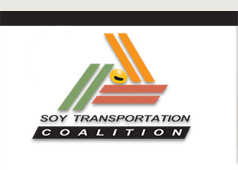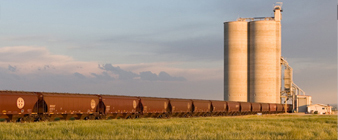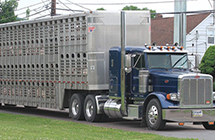 |
 |
|
| eNews • January 2019 | ||
| Promoting a Cost-Effective, Reliable and Competitive Transportation System |
||
 DOT permanently suspends ELD requirement for livestock haulers
DOT permanently suspends ELD requirement for livestock haulers
The U.S. Department of Transportation has permanently suspended the requirement that livestock haulers use electronic logging devices (ELDs) in their trucks, according to the National Pork Producers Council (NPPC)'s Dec. 21 Capital Update. However, the government shutdown has stalled action by Congress to offer a permanent fix.
The Federal Motor Carrier Safety Administration website was recently updated with the following statement: "Transporters of livestock and insects are not required to have an ELD. The statutory exemption will remain in place until further notice. Drivers do not need to carry any documentation regarding this exemption."
NPPC explained that as part of the 2012 Moving Ahead for Progress in the 21st Century Act, the Commercial Motor Vehicle Safety Enhancement Act mandated that drivers of commercial motor vehicles replace their paper logs with ELDs by Dec. 18, 2017. ELDs record driving time, engine hours, vehicle movement and speed, miles driven and location information.
On behalf of the U.S. pork industry and other livestock sectors, NPPC requested a waiver from the requirement. The organization also asked for an exemption from the regulation, citing the incompatibility between transporting livestock and DOT's Hours of Service rules. NPPC said those regulations limit truckers to 11 hours of driving daily, after 10 consecutive hours off duty, and restrict their on-duty time to 14 consecutive hours, which includes non-driving time.
While DOT granted the waiver, NPPC said a permanent fix was not determined. Still, NPPC applauded the Trump Administration's commitment to U.S. agriculture, marking the decision as a "huge win" for U.S. livestock producers and haulers.
A few months ago industry groups, including the National Cattlemen's Beef Assn. (NCBA), said they worked closely with allies in Congress to secure a temporary exemption through December 7, 2018. However, with the government now under shutdown and no deal before the Dec. 21 expiration, that remains in question.
In a tweet Dec. 28, NCBA said: ".@FMCSA updated the language on their website a couple weeks ago, but that doesn't change the fact that livestock haulers need Congress to extend the delay for another year. Ultimately we need more time to find a permanent fix to overly-restrictive Hours of Service rules."
A draft fiscal year 2019 government spending bill included a provision that would delay ELD implementation for livestock haulers until September 30, 2019. "Keeping that provision included in any spending bill is an immediate priority," NCBA said ahead of the government shutdown.
NCBA said it is also looking forward to further conversations with the DOT on the recent petition that requests flexibility for livestock haulers on Hours of Service (HOS) requirements. Authored by industry groups including NCBA and the Livestock Marketing Association, the petition asks for increased drive time for livestock haulers and includes a plan for working with the DOT on additional fatigue-management practices. The petition has already garnered bipartisan support in both chambers of Congress (read the letters of support here and here). As a next step, DOT is expected to open a public comment period on the petition.
Source: Feedstuffs
Soy Transportation Coalition |
|
